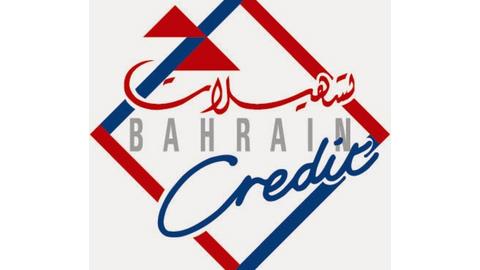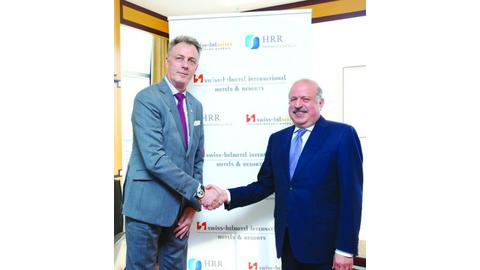25pc petrol price rise shock, MPs plan protest in parliament
There has been an uproar among Bahrainis and residents over a sudden increase in petrol prices.
The cost of premium Mumtaz (95 octane) petrol rose by 25 per cent, from 160 fils to 200 fils per litre, as of around 2.30pm yesterday.
Drivers who prefer cheaper Jayyid (91 octane) fuel will now have to pay 140 fils per litre, a 12pc increase from the previous 125 fils.
The decision, announced by the National Oil and Gas Authority (Noga), was implemented immediately with reports surfacing of many petrol stations across the country closing down for a while in order to make the change in the pumps and put up new signs.
Anger
Motorists who were already lined up at petrol stations when the decision was announced were shocked at the rise in prices, while others took to social media to express their anger, with a hashtag in Arabic that translated to ‘increase in oil prices’ instantly trending on Twitter.
Low oil revenues and the widening of a projected budget deficit from BD3 billion to BD5bn prompted a major government cost-cutting drive in 2016.
Electricity and water rates increased for all expatriates and the private sector, while fuel prices went up, meat subsidies were lifted and austerity measures were introduced.
Excise duties on more than 900 items classified as harmful products were introduced on December 30, with the prices of tobacco products and energy drinks going up by 100 per cent and soft drinks costing an additional 50pc.
This is in addition to the expected implementation of Value Added Tax (VAT) this year, which is in compliance with a GCC agreement.
“After reviewing (oil prices) in the Gulf and world markets, the prices will now be 140 fils per litre for Jayyid, which was 125 fils per litre,” said a statement issued by Noga yesterday.
“Mumtaz petrol will be 200 fils per litre which was 160 fils per litre previously.
“This means (the price for) Mumtaz petrol has increased by 25pc and Jayyid by 12pc.
“Fuel subsidies are expected to exceed 66 million in 2018, up from 41m in 2017.
“Despite this price rise the government is still subsidising petrol prices by more than 33pc.
“The prices of petrol in the Gulf counties range between 180 and 205 fils per litre, which was part of economic reforms taken by GCC countries to tackle the decrease in oil prices and subsidise the petrol derivatives
“This will achieve financial stability and cut the difference in prices in the Gulf and international markets.”
In January 2016, Mumtaz fuel rose by 60pc, from 100 fils to 160 fils per litre, and Jayyid increased to 125 fils per litre from 80 fils.
That decision was the first time Bahrain increased petrol prices since 1983, and the government hoped to make savings of BD56m annually – BD40m on Mumtaz and BD16m on Jayyid.
MPs plan to protest the decision in parliament today, with many of them lobbying to have the schedule postponed until next week to dedicate the entire session to the fuel prices.
The move is being led by foreign affairs, defence and national security committee acting chairman Khalifa Al Ghanim.
“Living expenses are already a burden and the public can’t cope with an increase of even one dinar in their total spending because it would mean a shortage in their planned budgets,” said Mr Al Ghanim.
“This is not soft drinks, tobacco or energy drinks that people can live without after the Excise tax was introduced last week, we are speaking about fuel.
“The plan is to stand against this decision until the government cancels it.
Options
“There are two options: One is to postpone all topics and focus on this issue, or simply not enter the chamber entirely.”
Parliament acting chairman Ali Al Aradi explained that the government had “every right to increase fuel prices” and other fees to meet financial obligations without even coming to parliament for permission.
“People have to understand that the choice to increase fuel prices has come as the least of the evils on the government’s table, which could have seen it introduce fees for health or education, or reduce the number of homes it will build,” he said.
“We are speaking about extraordinary circumstances and people have to cope with them.
“We, in parliament, cannot do anything since it is purely the government’s call.
“MPs have every right to introduce the topic in session and make their own demands – we represent the pulse of the nation and should voice their concerns.”
However, MP Mohammed Al Jowder urged people to take a stand against the decision and not depend on parliament.
“In Germany, when they increased fuel prices and when parliament said it had nothing to do with the decision, people parked their vehicles in the middle of the road until the government cancelled the rise,” he said.
“We will raise the issue, but if the whole nation takes a stand against it in the media – traditional and social – then the government may turn around and do the same as Germany.”
One petrol station employee told the GDN that motorists were shocked when they were informed about the rise in petrol prices yesterday, with some of them almost getting into an altercation.
“I was extremely shocked when I was told there was yet another increase in fuel prices in Bahrain,” said a Bahraini motorist at the Juffair petrol station.
“I work in a supermarket, so I know exactly how the prices are being increased on everything, including pampers and milk and most people are not even noticing.
“I have two children, a daughter and a son and I can barely support them in this impossible life.
“How can I survive on my BD225 salary and all prices are increasing in addition to the taxes.
Another citizen said Bahrainis could not “keep up” with increased prices and new taxes due to low salaries.
“People living in Saudi Arabia or UAE can afford to pay for petrol when their government increases the petrol prices,” said the 32-year-old on the condition of anonymity.
“However, in Bahrain our salaries are around BD300 compared to the minimum salary of BD1,700 in those countries – Bahrainis cannot afford an increase in prices like their Gulf neighbours.”
An Indian taxi driver said if prices continue to increase he would not be able to afford working in Bahrain.
“I might have to go back to India because there is no point living here if the prices continue to increase,” he said.
“In addition taxes will be implemented soon in Bahrain and I think a lot of people will travel back to their home countries.
“I am married and have a six-year-old boy and working in Bahrain has become difficult for me to support my family.
Difficult
However, one Bahraini man said the increase was expected as the region was facing difficult circumstances.
“I will not be affected by the price increase but other Bahrainis who are being paid BD300 will have a difficult time,” added the 46-year-old project manager.
Saudi Arabia increased its petrol prices at the start of this year, while Kuwait announced an 80pc increase in petrol prices in September 2016.
Source: http://www.gdnonline.com/Details/301954/25pc-petrol-price-rise-shock,-MPs-plan-protest-in-parliament


